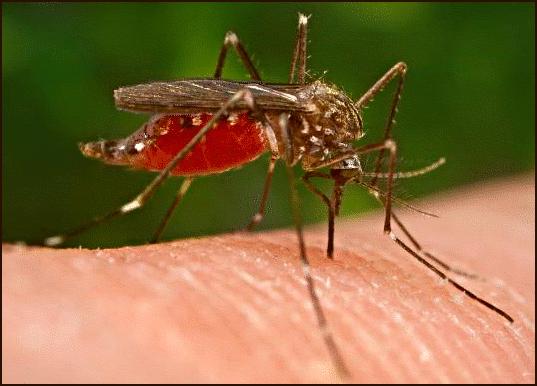
Malaria is a life-threatening, mosquito borne disease caused by plasmodium parasite.
It is particularly widespread in Africa, and Nigeria currently has the highest number
of malaria cases globally. Centuries have passed since we’ve known Malaria as a disease,
yet we continue to lose millions of lives to it every year. Despite several initiatives
by International Agencies and the Nigerian Government to increase Malaria awareness, Malaria
is still considered a trivial illness by a number of people. Therefore, it is not a surprise
that Malaria still has many myths. This article seeks to dispel some of the most common
myths and misconceptions about Malaria.
1) Myth: Eating garlic repels mosquitoes.

There is no scientific proof or evidence to support this claim. Garlic produces a sulphur
compound known as allicin which has some anti-bacterial, ant-fungal and anti- parasitic
activities1. The impact of garlic on Malaria infected mice have been studied in the past.
The result showed that the use of allicin leads to a reduction in the number of malaria
parasites in the blood2. But no research has been conducted on the human immune system.
2) Myth: Being infected once makes you immune.
Unlike viral infections, such as chicken pox that confer life-long protection, malaria
does not confer any protection against repeat infection. A treatment is applicable for
a particular attack only and once it is completed, an individual is still prone to
re-infection when bitten again.
3) Myth: Malaria isn’t fatal.
Not true. In 2016 alone, there was an estimated 438,000 deaths reported3. Of course,
not every case of Malaria is fatal, in fact the majority of malaria cases are not fatal
if detected and treated early.
4) Myth: Mosquitoes only bite during rainy season.
There may be a slight fluctuation in mosquito activity during the rainy and dry season,
this doesn’t mean that they aren’t active all year round. Although mosquitoes are more
active in the wet season, they don’t suddenly disappear as soon as the dry season begins,
therefore one is still at risk of being bitten.
5) Myth: Mosquitoes are only found in rural areas.

Mosquitoes are also found in urban environments as well. For example, if you let dirty
water stay in a clean place, it can still be a breeding ground for mosquitoes. While
well ventilated rooms in urban areas may reduce the risk of been bitten at night, they
aren’t extinct in these areas. It only takes one bite from an infected mosquito to contact the disease.
6) Myth: Malaria stays for life.
Malaria is completely treatable with simple, effective treatment. WHO currently recommends
ACT (Artemisinin-based Combination Therapy) for use against P.falciparium malaria. Malaria
does not remain with an individual throughout ones lifespan. There is every chance that the
infection can reoccur if bitten again by an infected mosquito.
7) Myth: Malaria can be prevented by a vaccine in Nigeria.

Progress towards developing malaria vaccines has accelerated in recent years. In 2017,
WHO/AFRO announced that Ghana, Kenya and Malawi will partner with WHO in the Malaria
Vaccine Implementation Programme that will make the RTS,S vaccine available in selected
areas of the three countries4. This program hasn’t been announced in Nigeria, till its
introduced, there is no vaccine available in Nigeria. RTS, S is the candidate malaria
vaccine furthest along in development globally. Till date, this is the only vaccine that
shows a protective effect against malaria among young children.
8) Myth: If there are no chills, it cannot be malaria.
The symptoms of Malaria can be misleading as they vary from being mild such as fever and
headaches to being more serious like jaundice and difficulty in breathing. Many malaria
patients do not suffer from the typical shaking chills in the early stages of the infection.
Hence, waiting till you experience chills to get a blood test can prove risky as the disease
may have progressed by then.
9) Myth: Mosquitoes are attracted to people with fair skin.
Mosquitoes don’t discriminate. There are no studies showing that mosquitoes are attracted
to any particular skin colour.